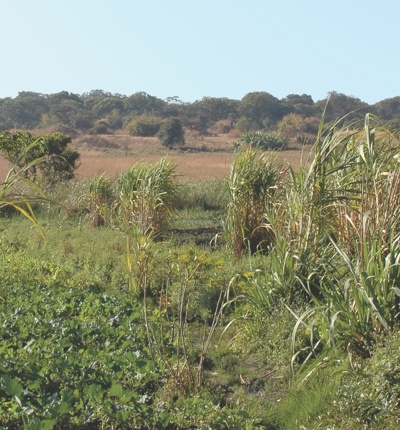
Zambian villagers celebrate after Supreme Court ruling
Liberty Bridge, from the international team, discusses the recent Supreme Court ruling which allows Zambian villagers to proceed with their claims against Vedanta in the English Courts.
Posted on 10 May 2019
On 10 April 2019, following a Supreme Court ruling, 1,826 Zambian villagers celebrated the fact that their claims against Vedanta & KCM can proceed in the English Courts.
The joyous celebrations witnessed in the Chingola district of Zambia came after 4 years of hard-fought legal battles which saw them succeed in the High Court, then in the Court of Appeal and finally the UK’s highest Court, the Supreme Court.
After being informed of the successful Supreme Court judgment, Leigh Day client, Dominic Lungowe said: “It’s like a dream as we as a community have failed to get justice for over a decade. We are thankful to Leigh Day for not giving up on the case and we look forward to justice."
The Supreme Court ruling means that Vedanta & KCM can no longer delay proceedings by claiming that England is not the appropriate place for the case against them on behalf of the villagers to be heard.
After listening to two days of oral arguments, from both sides, and reviewing hundreds of pages of written submissions, Lady Hale, Lord Wilson, Lord Hodge, Lady Black and Lord Briggs were all in agreement that these claims should proceed in England rather than Zambia.
Lord Briggs wrote the leading judgment which hinged on four key issues;
- Whether the claim against Vedanta is an abuse of EU Law and should be stayed
- Whether the claims disclose a real triable issue against Vedanta
- Whether England is the proper place to bring a claim against KCM
- Whether if the claims were remitted to being brought in Zambia, there is a real risk that the Claimants would not obtain substantial justice
Ultimately Lord Briggs decided that there was a real triable issue against Vedanta and although Zambia was the proper place to bring the claim against the Zambian subsidiary KCM there is a real risk that the claimants would not obtain substantial justice in Zambia. Therefore the appeal must be denied and the claims must be allowed to proceed in the English courts.
Lord Briggs was keen to note in his judgment that the lack of access to justice in Zambia for these claims does not stem from any institutional failings within the Zambian legal system or with the Zambian judiciary but because there is not a comparable legal funding system in Zambia or suitably experienced and resourced lawyers that would enable a large environmental group claim such as this to be brought.
The case has been heralded as an ‘historic judgment’ by the NGO community. To coincide with the release of the judgment CORE Coalition, who intervened in the case along with the International Commission of Jurists (ICJ), and more than 20 other NGOS and unions have called for new legislation to be introduced to force companies to take action to prevent human rights and environmental abuses, and hold them to account if they fail to do so.
We welcome such legislation and encourage companies to take action immediately before further atrocities take place which will affect more communities around the world.
The fight now continues on behalf of our 1,826 Zambian clients who are still residing in the vicinity of KCM’s copper mine and are still suffering as a result of the toxic effluent discharge which leaks from the mine.

